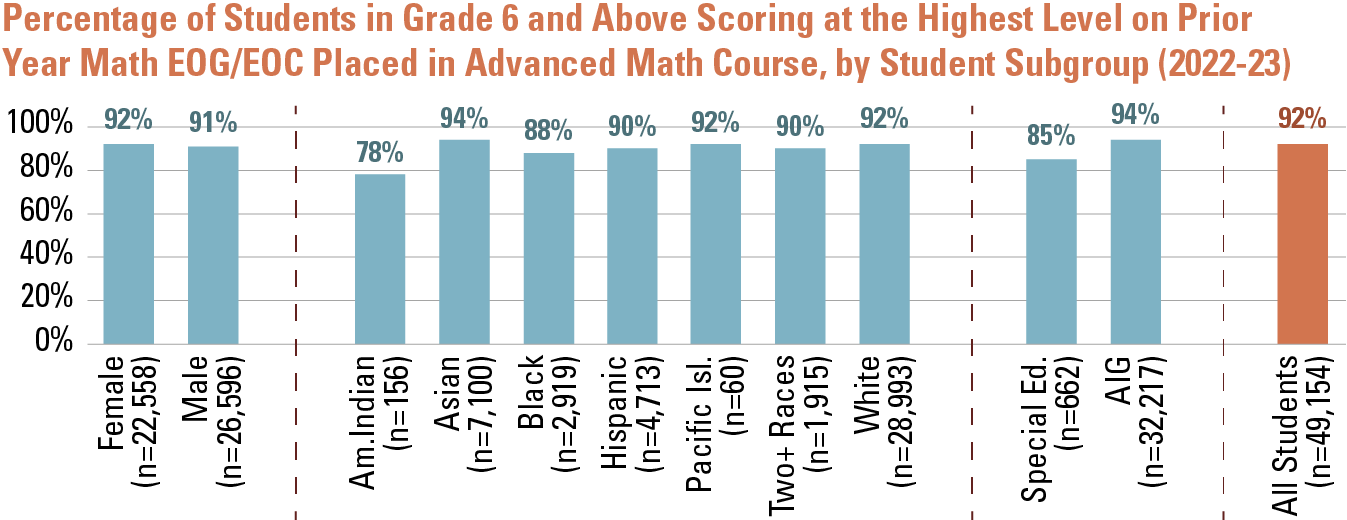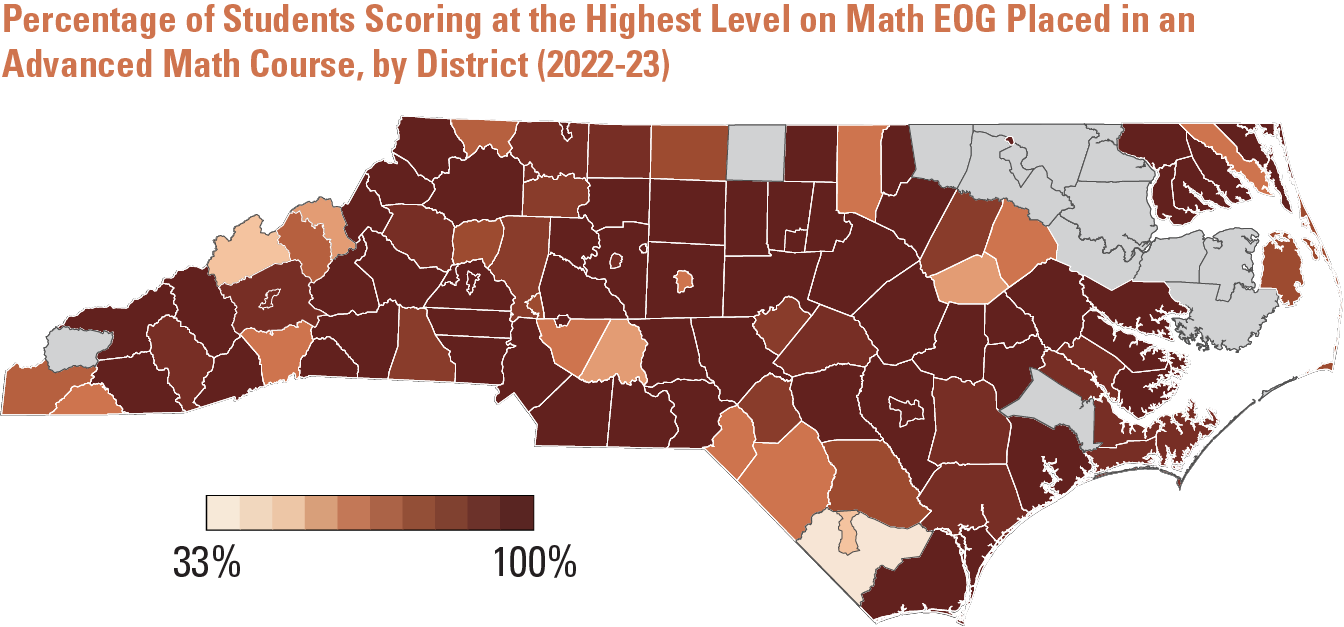Advanced Math Course Access in North Carolina
Note: The following blog contains excerpts from an essay published in The 74 Million in November 2023, co-authored by Dr. Jonathan Plucker, Professor of education and Director of the Education Policy Program at Johns Hopkins University and Brenda Berg, President and CEO of BEST NC.
In today’s economy, where an increasing number of jobs require strong math and data analysis skills, it is imperative for high school and college students entering the workforce to have access to and experience in higher level math courses. In fact, research shows that students who enroll in and complete advanced math courses are more likely to be ready for post-secondary education than students who do not.
However, in many states and districts across the country, qualified students often do not receive access to advanced math courses. This happens more frequently to economically disadvantaged students, leading to inequitable access to challenging math coursework for low-income students.
North Carolina’s Advanced Math Coursework Policy
In 2017, the News and Observer published a series of investigative reports called the “Counted Out” series, examining advanced math placement practices in several large school districts in North Carolina. The analysis found that qualified economically disadvantaged students were less likely than their affluent peers to be placed in advanced courses, despite having similar levels of preparedness.
In 2018, partially in response to the “Counted Out” series, the North Carolina General Assembly passed legislation requiring all students who score at the highest level on their math End-of-Grade tests to be placed into an advanced learning opportunity (grades 3-5) or advanced math course (grades 6 and up) during the following school year. This was the first law in the nation to require automatic enrollment in advanced courses for highly qualified students.
Note: Parents may still opt their child out of the advanced math course if they believe it is not the right placement for them.
NC DPI estimates that, immediately after passage of the law, as many as 8,000 students in grades 6 and above were placed in advanced courses to which they otherwise would have been denied access. Specifically, 2,100 rising 8th graders were moved up into Math I – an algebra-focused course typically taken in 9th grade – during the summer of 2018 after having been originally placed in regular or even remedial 8th grade math. This means that thousands of qualified middle schools students received access to a high school level math course, and therefore, a faster track to college prep math courses, that they would have otherwise not had access to.
Although not all districts were initially supportive of the policy, several have since reported that the policy helped to accelerate learning for high-performing students that had been overlooked, including students in key demographic groups like English Language Learners.
In 2019, the law was updated to require an annual report on implementation, including capturing how the demographic makeup of advanced math course enrollment is altered by the policy.
North Carolina’s Advanced Math Coursework Policy
The most recent report on the implementation of the state’s advanced math coursework policy reveals several important trends.
- In 2022-23, 92% of students in grades 6 and above who scored at the highest level on their prior year exam were placed in an advanced math course (45,003 out of 49,154). While 92% represents a high level of advanced math coursework participation for students with demonstrated aptitude in math, it also raises serious questions about why nearly 10% of qualified students are not being placed, including whether or not the cause is a decision to opt-out by their parents.
- Disaggregated data also reveal gaps in placement across demographic groups with 92% of White students placed, 88% of Black students, 90% of Hispanic students, and just 78% of American Indian students.

Sources: North Carolina General Assembly – Joint Legislative Oversight Committee; NC DPI (Data Request)
- Placement rates also vary across North Carolina’s school districts, ranging from 33% in Columbus County to 100% in 18 districts. It is worth investigating the reasons for the inter-district variation in advanced math placement rates of qualified students.

Source: NC DPI (Data Request)
- Placement in advanced math also varies significantly by grade, with 6th, 7th, and 12th grade placements rates lower than those for 8th, 10th, and 11th. Lower rates at the middle school grade levels suggest that not all districts offer advanced courses to students in these grade levels. There are a host of possible reasons; for instance, in smaller and more rural schools, there may be too few qualifying students to offer these courses. This is also a topic worth investigating further.

Source: NC DPI (Data Request)


